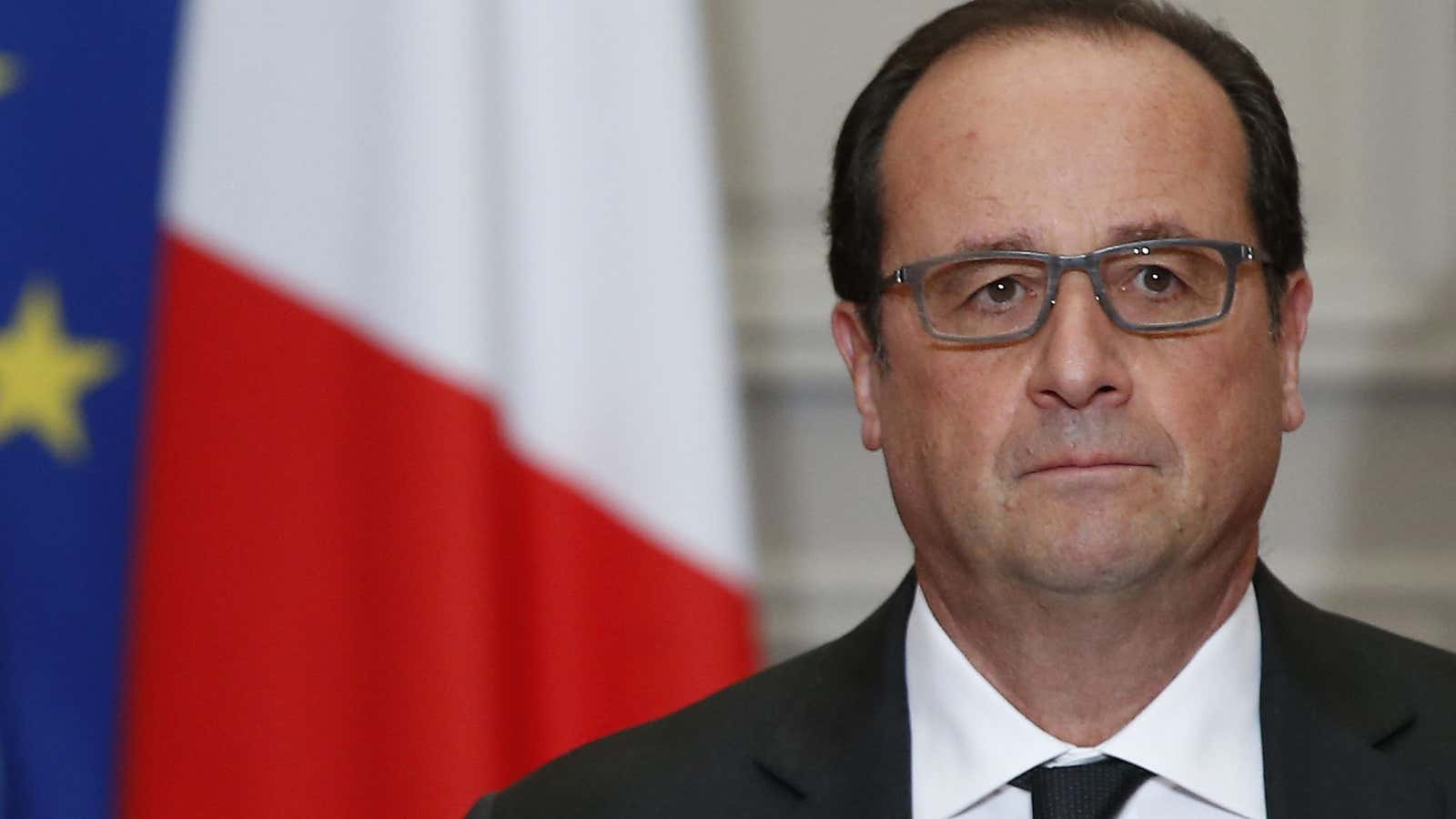Paris
Cosmetics are designed to conceal blemishes and the French are connoisseurs of maquillage.
Yet even a most-generous smear of the $17 billion worth of unguents the country annually exports is likely insufficient to restore the rosy glow France lost when a jihad of medieval Islamic French millennials crawled out of the Paris slums to slaughter 130 people from 19 countries, disrupting the profitable $38 billion industry called la vie de bohème.
“Culture remains when all else is forgotten” has been the French proverb most frequently uttered by young Parisians in the wake of the November 13 attacks. But listen closely and you can hear the sound of them packing their bags for more welcoming lands.
France has more surveys and unemployment statistics to choose from than cheeses, and all of them stink; according to one 2014 poll in the newspaper Le Point, half of all young French adults would leave the country if they could because their future looks so miserable. That’s a neighborhood of some 24 million residents in a country of 66 million people.
There’s nothing new here, including French politicians of all stripes continuing to insist they’ve successfully ushered the Republic’s current multicultural generation into the 21st century. “Tragically, they are yoked to a chariot that bogged down 50 years ago, and whose drivers can only look backwards,” French film director André Labarthe observed—in 1955.
France never has been a moveable feast if you’re French and without the pedigree to enjoy le droit du seigneur.
In addition, the battle between the “Christian House of War” and the “House of Islam” has never ceased to haunt secular France. Islamic terrorists, the British historian Tom Holland observes, “inhabit a mental landscape in which the Middle Ages never went away.” The intolerably ancient ritual of a Holy War has become an excuse for more than a few disenfranchised French Muslim youth to open fire in the city to that in 1096 helped launch the First Crusade.
Until November 13, the Islamic banshee made its most violent appearance in the 1950s and early 1960s, when Paris was the target of what the Muslim world called Tagrawla Tadzayit, Algeria’s war of independence against its colonial French rulers. It was a time of roiling youth unemployment, gunfire on the streets, and millions of Muslims demanding “the restoration of the Algerian state within the framework of the principles of Islam.”
As confrontation waged at home and in the Maghreb, Rosalie Duran, in a 1955 letter to Le Figaro, described the plight facing post-World War II youth: “What kept our spirit up during the dark, horrible days of the Occupation was the conviction that the Liberation would be our redemption,” Duran wrote. “Now, with our illusions shattered, we simply struggle for survival.”
That singular and now resurgent bloody reality for decades has been lost on the luxury croissant crowd at Café de Flore, who embrace France as a Disneyland for adults and the French political class, who inhabit the National Assembly, the parliament known locally as la maison sans fenêtres, the house without windows.
To be sure, France’s fight against terrorism already has been embroidered into the Vive la Resistance social media marketing stream, gift wrapped with inspirational allusions to the Maquis battling Nazis on the boulevards of Paris. My father-in-law was a captain in the Resistance. There is no comparison.
But the new Maquis memes are abundant: Je suis Charlie; Je suis Paris, and Fluctuat Nec Mergitur (Tossed by the waves but not sunken). There’s even a même meme: Même Pas Peur (Not Scared). My personal favorite: Je Suis En Terrasse or, “I’m sitting at the terrace of the café,” where a splash of coffee with luck can set you back €6.
The meme you won’t see flowing across Twitter’s #ParisAttacks is Méfiance, a distrust for the powers that be. Yes, a harsh word, but also an accurate and worrisome expression of the disorientation, disenchantment, and disappointment French secular and Muslim millennials have experienced under successive politicians rooted in the distant past, unable to abide the type of disruptions that engender tolerance and social and economic growth.
